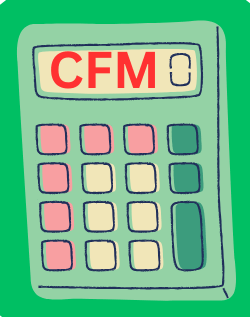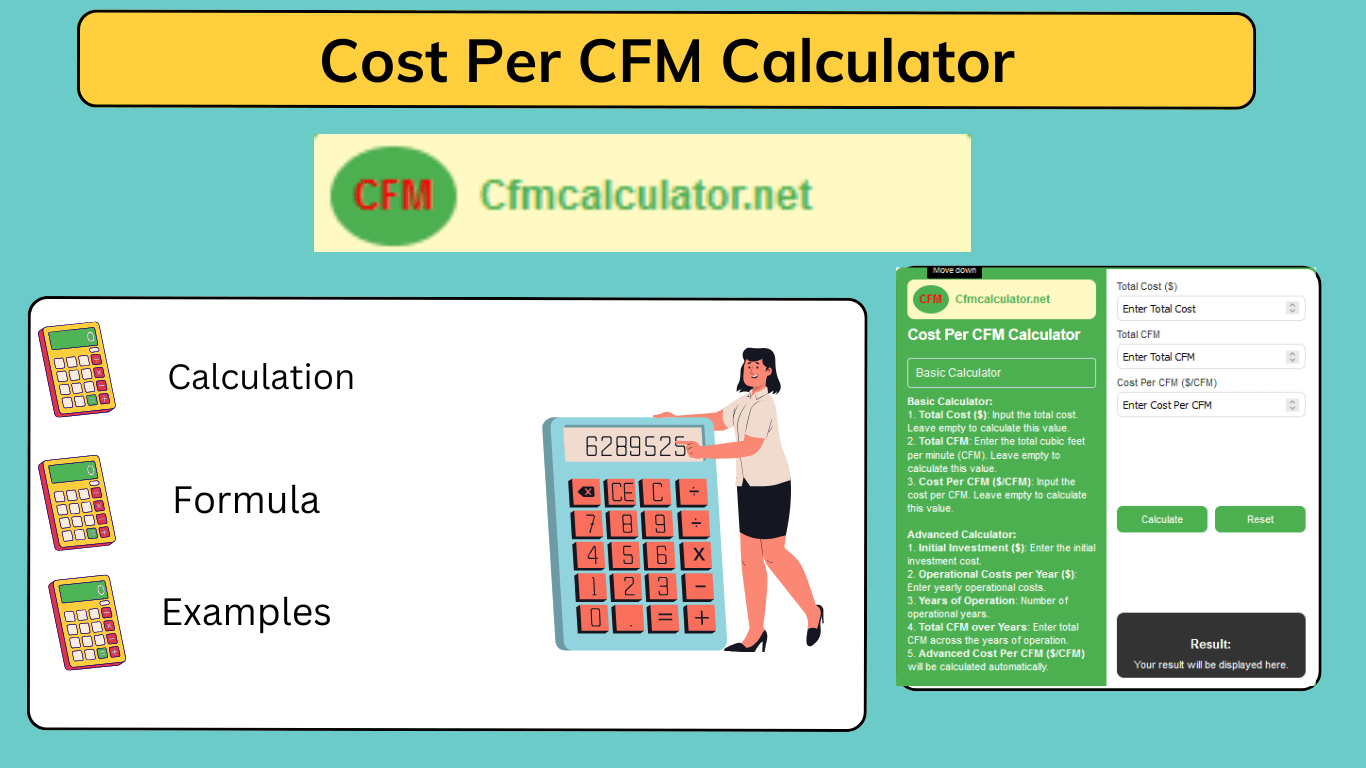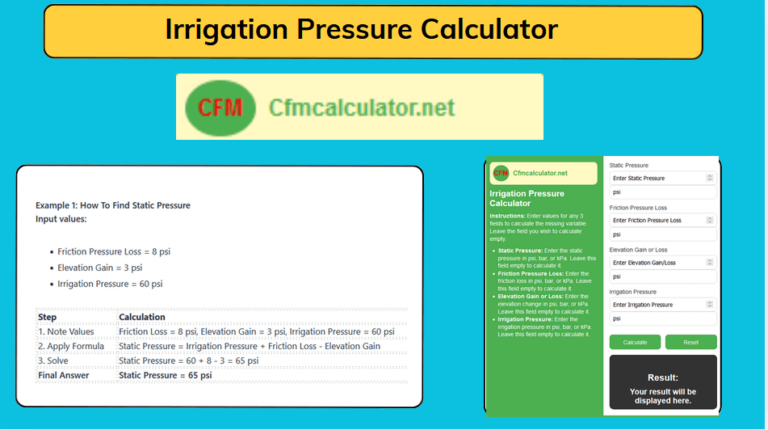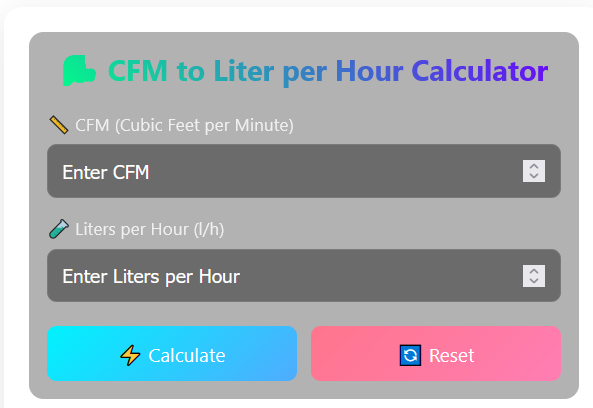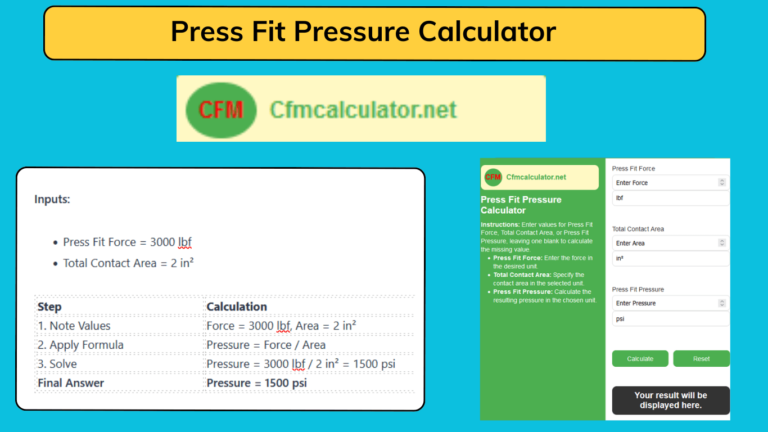Cost Per CFM Calculator
You can manage your heating, cooling, or air system better by knowing the cost per CFM. Use this tool to easily estimate your costs.
Use its advance mode that will provide you a complete lifecycle cost analysis.
Cost Per CFM Calculator
Contents
Your result will be displayed here.
How You Can Calculate Cost Per CFM
The basic formula to determine cost per CFM is:
For long-term planning, use the advanced mode that also includes initial investment and operational costs:
Example Calculation
For example, if you’re comparing two HVAC units – one costs $10,000 for 3000 CFM and another costs $12,000 for 4000 CFM. The cost per CFM calculation helps you make the best decision about which system offers better efficiency and long-term savings.
Here’s the completed post with the example, followed by a helpful information table and 4 short FAQs, written in your preferred tone:
How You Can Calculate Cost Per CFM
To make smart HVAC decisions, it’s important to compare how much airflow you get for every dollar spent. That’s where the Cost Per CFM Calculator comes in.
Basic Calculation Example
Suppose you have two systems:
-
System A costs $10,000 and delivers 3000 CFM
-
System B costs $12,000 and delivers 4000 CFM
Now, calculate cost per CFM:
-
System A: $10,000 ÷ 3000 CFM = $3.33 per CFM
-
System B: $12,000 ÷ 4000 CFM = $3.00 per CFM
👉 In this case, System B gives you more airflow for less money per unit, making it a better investment.
Advanced Calculation
If you also consider operational costs over time, use this:
Advanced Cost Per CFM =
(Initial Investment + Yearly Operational Costs × Years) ÷ Total CFM across those years
This shows the real cost efficiency over the system’s lifetime.
Quick Comparison
| Mode | What It Measures |
|---|---|
| Basic Mode | Compares total purchase cost to CFM output |
| Advanced Mode | Includes operational cost and usage years for full cost picture |
| Ideal Use | Budgeting, system comparisons, lifecycle analysis |
| Best For | HVAC buyers, engineers, facility managers |
| Main Benefit | Helps pick the most cost-efficient system over time |
FAQs
1. What does this calculator help with?
It shows how much you’re paying per unit of airflow, so you can compare system efficiency and cost-effectiveness.
2. When should I use advanced mode?
Use it when you want to include long-term operating costs along with the initial investment.
3. Can it help lower HVAC costs?
Yes! It highlights which system gives you better airflow for your budget, helping you avoid overspending.
4. Who should use this tool?
Anyone choosing between HVAC systems—especially for commercial, office, or industrial use.
